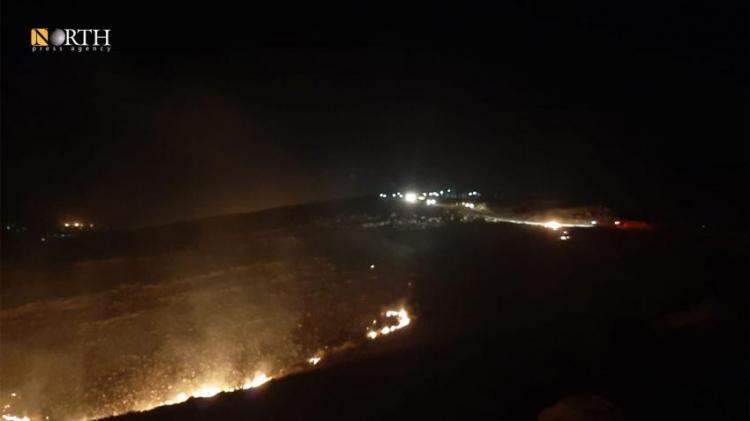Turkish military operations are illegal – Media advisor in Kurdistan Region of Iraq
KURDISTAN REGION, Iraq (North Press) – Tariq Johar, the media advisor in the parliament of the Kurdistan Region of Iraq (KRG), said on Sunday that "Turkish military operations are illegal and violate all international norms, conventions, and laws."
Ankara continues its military operations in the KRG, despite all international and domestic condemnations, and without any respect for the sovereignty of Iraqi territory; it even assures that its operations will continue in these areas.
At a time when Turkey legitimizes its operations in Iraq, claiming that they came at the request of the Iraqi government, the Iraqi Foreign Ministry summoned the Turkish ambassador in Baghdad, Fateh Yildiz, and handed him two strongly-worded notes condemning the Turkish military intervention in Iraq.
On the illegitimacy of Turkish military operations, Tariq Gohar explained to North Press that "it is not the first time that Turkey has undertaken such operations."
In 1983, Turkey carried out more than thirty military operations, taking advantage of the security agreement it concluded with the government of Saddam Hussein in the early 1980s, in a clear violation of the sovereignty of Iraq and the Kurdistan region.
Turkish goals
"Turkey wants to achieve several goals with its interference in Iraq, the first of which is the export of its internal crisis outside its borders due to the upcoming parliamentary elections and the emergence of more than one competitor to Erdogan, such as Davutoglu, Ali Babacan, and others. It is also taking advantage of the weakness of the Iraqi government and the KRG because of their political, economic and security disagreements,” Gohar added.
Turkey also aims to target any Kurdish and international efforts attempting to unify the Kurdish parties in Syria, especially after the rapprochement between the Autonomous Administration and the Kurdish National Council (ENKS) last week. Ankara threatened the parties of the ENKS who were previously loyal to Erdogan not to reconcile with the SDF, or they would be targeted, according to Gohar.
Gohar added that "Turkey aims to expand its regional influence at the expense of the sovereignty of both Iraq and Syria, with Qatari financial support, in order to realize the dream of building the Erdogan state in the form of the Ottoman Empire.”
He pointed out that "to achieve this dream, Turkey is trying to enhance its military presence in Iraq by building more camps in the Kurdistan region, in order to seize the province of Mosul in the new Erdogan state. Then it intends to eliminate the KRG and put pressure on Baghdad in order to achieve economic and commercial interests for its companies in Iraq.
Despite the Iraqi government’s annoyance with the Turkish military intervention, Gohar claimed that the Iraqi response was shy, timid, and substandard due to the weakness of the Iraqi government, political disagreement, the economic crisis, and the submission of Iraqi politicians to regional and international pressures and their lack of national will."
Gohar said that “who rules in Baghdad does not care about the disasters and military attacks on the Kurds and the Kurdistan region. There is a belief among the observers in the region that the government of [Iraqi Prime Minister] al-Kazemi may be involved with the Turks…America was aware of these attacks, gave the green light to Turkey and Iran to launch these raids and carry out these military operations, which resulted in the killing of dozens of civilians, the destruction of many villages, and the demolition of the economic and agricultural infrastructure in these areas."
Observers believe that the continued Turkish military intervention in the Kurdistan region of Iraq may foretell a diplomatic crisis between Iraq and Turkey because of its continued violation of Iraqi sovereignty, and that Turkey is seeking to impose its security presence on the KRG as it does in North and East Syria, to achieve goals and ambitions under the pretext of what it calls anti-terrorism.

